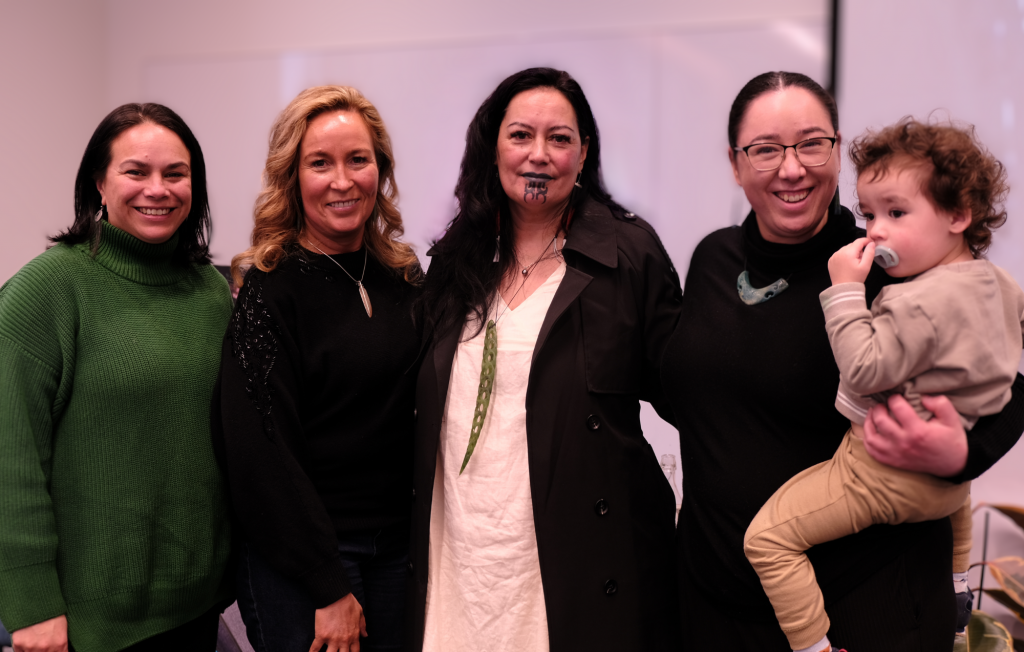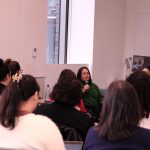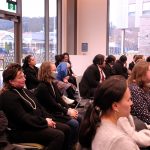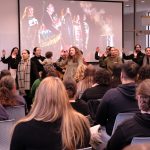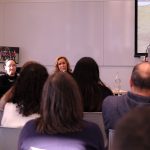Mātauranga Māori seminar from key wāhine Māori centres relationships, community and hapū
Mātauranga Māori was the centre of a fabulous Te Tumu Special Seminar Panel on Wednesday afternoon hosted at Te Rangihīroa College. Te Tumu Pūkenga Kare Tipa facilitated a vibrant, engaging and generous kōrero with wāhine Māori, Paulette Tamati-Elliffe, Tāwini White, Victoria Campbell as they reflected together about their experiences in the national Hautapu for Matariki as well as broader roles and responsibilities they have for uplifting and sustaining mātauranga Māori in their respective spaces.
There were several important themes that developed during the panel including leadership, family and the importance of relationships, locality, community, humility, responsibility, hapū, and doing your best. All of which was well received by a room filled with family, university students and staff, high school students and other interested people from the wider community.
For each of the panellists there were clear moments in their lives where the motivation for wanting their children and their mokopuna to have the language, really pushed the directions that they took in their careers, with their families, and in their communities. As each speaker reflected on her personal journey into te reo, it was clear that the process can look different and take time, but that it can positively change the way you live and the way you connect with the world around you.
Tāwini White commented that her “Mum was the key to the door of Kāi Tahutaka”. Both her parents were strong advocates of te reo and would take her along to things like Kotahi Mano Kāika (KMK) as it launched. As White’s niece made her way in the world, White knew that she wanted to be someone who could provide access to te reo and mātauranga, something she also practices with her two-year-old son.
Victoria Campbell talked about how there are different ways of navigating te reo journeys. Her early experiences of te reo and being Māori were quite formal and centred around her Mum, who, as an excellent cook, would often be out at the marae, at schools or in other community spaces. While her Mum and other women around her would often speak in English, the way they spoke, they idioms they used, the way they were with each other, all connected with Māori ways of being and knowing. Her Mum started learning te reo in her 50s and that has been really inspiring for her to see.
Tamati-Elliffe and her partner wanted to be “te reo grandparents” to create spaces where their children and mokopuna would have te reo because “it’s not just a language, it’s a worldview. Something that connects you to your past, present and future”.
Kare Tipa provided useful framing in the colonial underpinnings of the term mātauranga Māori but also the ways it has been reclaimed by Māori. Which opened a space for the panellists to consider the ways they apply and embed mātauranga in their lives and the work they do. Tipa emphasised that “everything we do comes from our localities, our knowledge”, but not all knowledge belongs to all people. There is knowledge that is specific to whānau, to hapū, to iwi and then there is knowledge for everyone, and it is important to uphold those boundaries.
Campbell also highlighted the importance of connecting with and understanding Indigenous time and seasonality, particularly (but not only) as it is practised for ceremonies related to Matariki and Puaka. Early on, Tamatai-Elliffe made a statement about the vastness of mātauranga Māori as something that one could easily study for a lifetime, “but unless you can apply it, what does it mean?”.
Strong perspectives were also given on the role the university can play in upholding and embedding mātauranga Māori across all spaces in the institution. These wāhine are all significantly involved practitioners of mātauranga Māori. And while some do not consider themselves as experts, it is clear how integral the practice and execution of mātauranga Māori is in their lives and the wide-ranging and beneficial work that they do. This is reflected in the roles they had as part of the kairuruku for the national Hautapu ceremony, but it also extends to kaupapa and movements that have been decades in the making and that each of these women are committed to continuing for the benefit of generations to come.
All the panellists were generous with their time and insight which had deep valuable for all who attended. There is certainly appetite and anticipation for more kōrero of this nature and wider engagement with diverse groups. The event was made possible with support from the Office of Māori Development, the team at Te Rangihīroa College and Te Tumu Research Committee.

